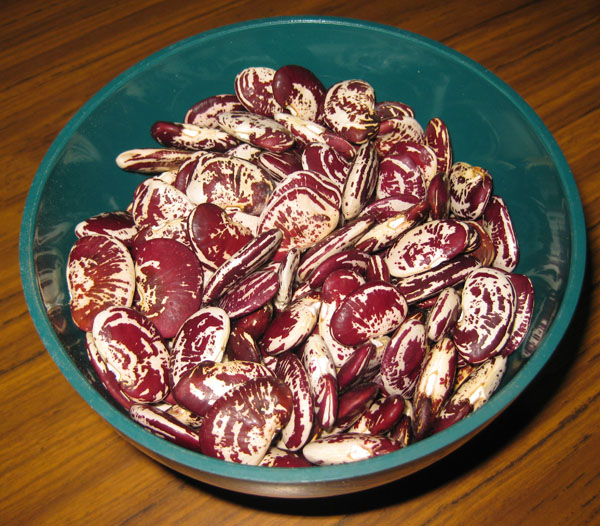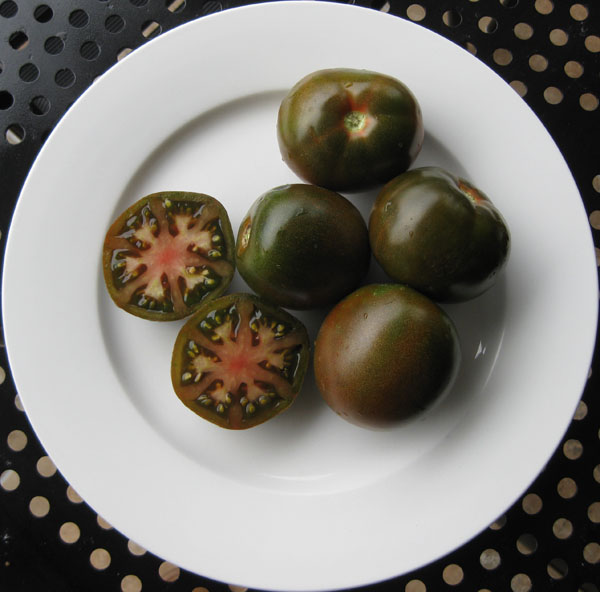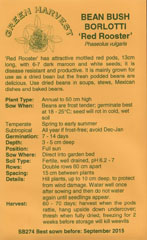Organic seed – why bother?
Did you know that seed retailed in Australia can be chemically coated with at least six different chemical products including insecticides, fungicides and specialised polymer coatings? Treated seed in Australia comes with warnings on all treated seed in small home garden size packs: ‘Caution: treated with (common or brand name of a fungicidal / insecticidal seed dressing) Do not eat these seeds or feed to animals’.
Does this hint at anything? – While I appreciate this transparency and advice, I’m greatly concerned because this is seed that we as consumers handle, our children help us sow, we put in the ground and grow our food from!
The issue of treated seed has huge implications for us all, for the environment and of course for multinational chemical companies and government. The industry argument is that treating seeds controls disease and insects and improves yield which equals increased profit. For me, it’s not just the issue of what goes on seed but all about the process of manufacture, application and environmental distribution of toxic substances.
Over 29,500 tonnes of herbicides, insecticides, fungicides and plant growth regulators are used each year in Australia (BFA.com.au: Australian Government Department of Sustainability, Environment, Water, Population and Communities, 2006). There is enormous evidence that chemical use in agriculture is responsible for a range of illnesses in our communities and there are numerous studies that link the use of these chemicals to diminishing marine life, animals and plants.
For example, researchers from Purdue University, Indiana have found causal links to serious decline in honeybee populations. Analyses of bees found dead in and around hives from several apiaries over two years in Indiana showed the presence of neonicotinoid insecticides, which are commonly used to coat corn and soybean seeds before planting. The research showed that those insecticides were present at high concentrations in waste talc that is exhausted from farm machinery during planting. If the process is killing bees required to pollinate our fruit and vegetables what is it doing to humans?
With just some of these issues in mind and when I’m going to the bother and joy of growing our own food I choose organic. That way I have no worries about pesticide or herbicide residues and limit my family’s exposure to unnecessary chemicals. I know what I’m feeding my family, I’m avoiding GMOs and reduce the amount of food additives my family consumes.
Organic seed also gives me greater choice of vegetables and fruit, unlike those produced for commercial growers where uniformity in weight size, colour and shape are dictated to by supermarket needs.
Have you ever thought when shopping that there has to be more choice out there than the 3 types of tomatoes on the shelf – you know the red large round, the small round tasteless ‘cherry’ and the egg tomato? Well there are and they are fun to grow. Why not try a ‘Black Russian‘ – completely non-alcoholic or a ‘Mortgage Lifter‘ – something we could all do with. ‘Cherry Rainbow‘ is a cherry mix that will fascinate the kids. Tomato seed, with the exception of F1 hybrids, is very easy to save. Just spread a few seeds on a piece of paper towel, write the name on as well, let it dry and put it away until the next planting season. A great way to save money and very satisfying.
So if you are growing or decide to grow your own vegetables you might like to ask the following when purchasing your seeds: Are they Organically Certified seeds? If Organically Certified you can rest assured that nothing nasty has been used to treat your seed and has not been used in the seed growing process. If not organic, are they untreated? If your seeds are untreated, then like the Certified Organic they have not had any chemicals added to them as a post-harvest treatment.
Even as a home gardener your choices make a difference to the world we live in. So when buying seed why not choose the best you can for you, your family and the environment that we are all a part of?
Tags: environment, health, insects, organic, seeds, wildlife
Posted in Organic Gardening, Sustainability







Leave a Reply